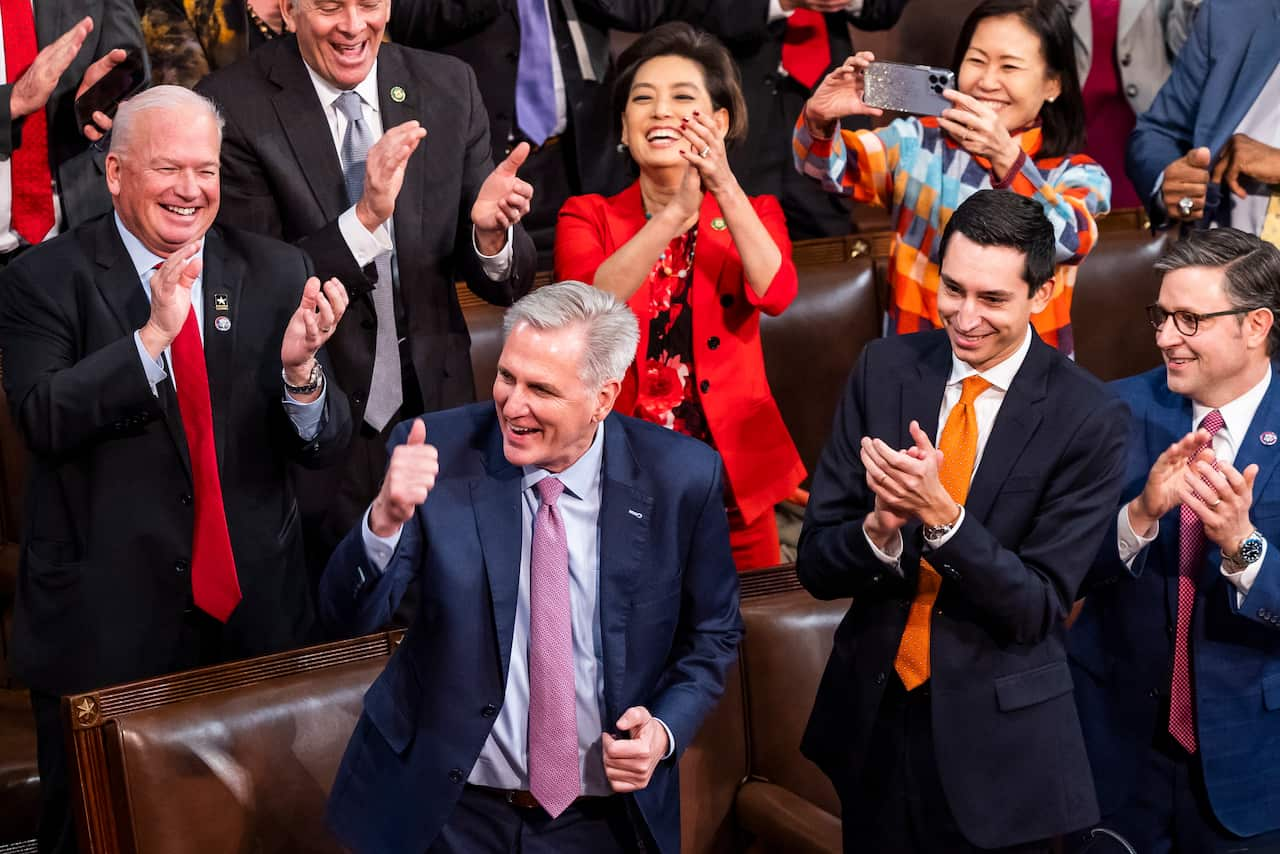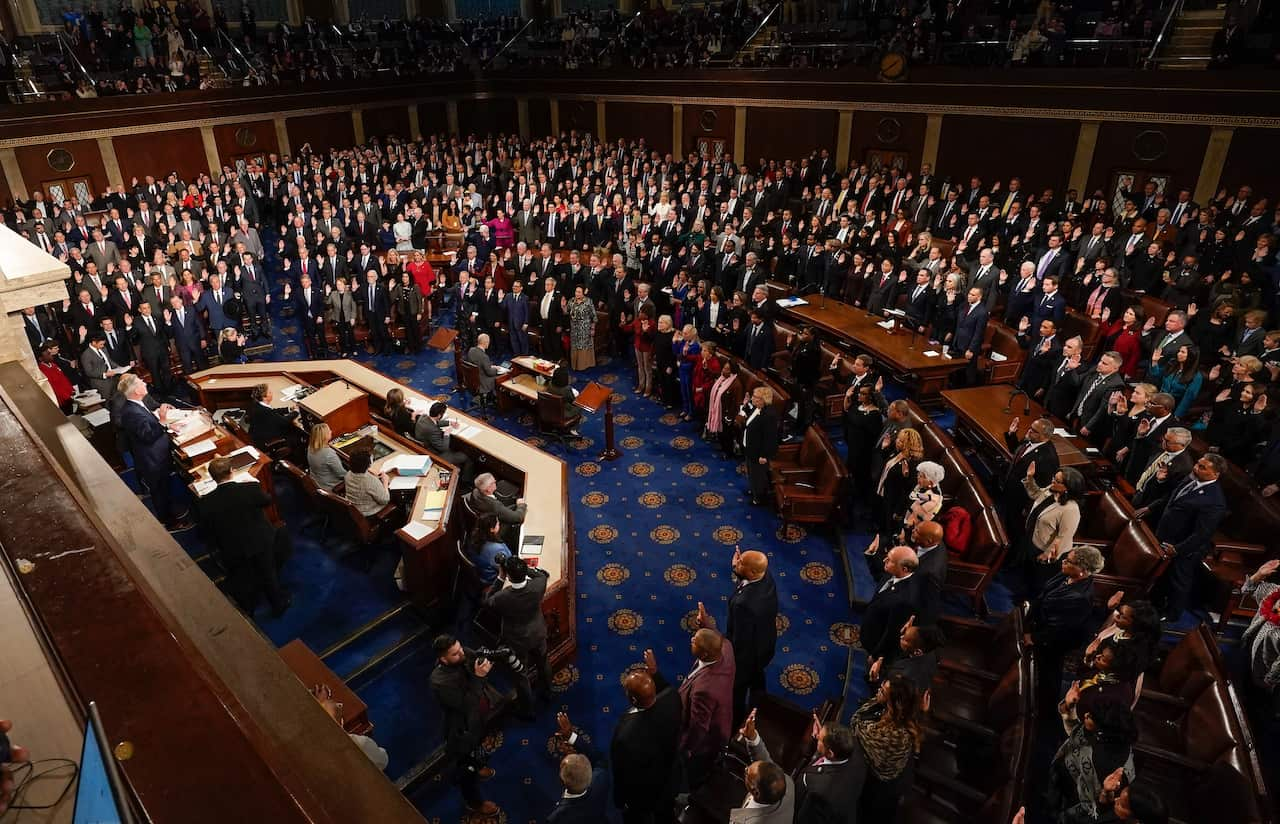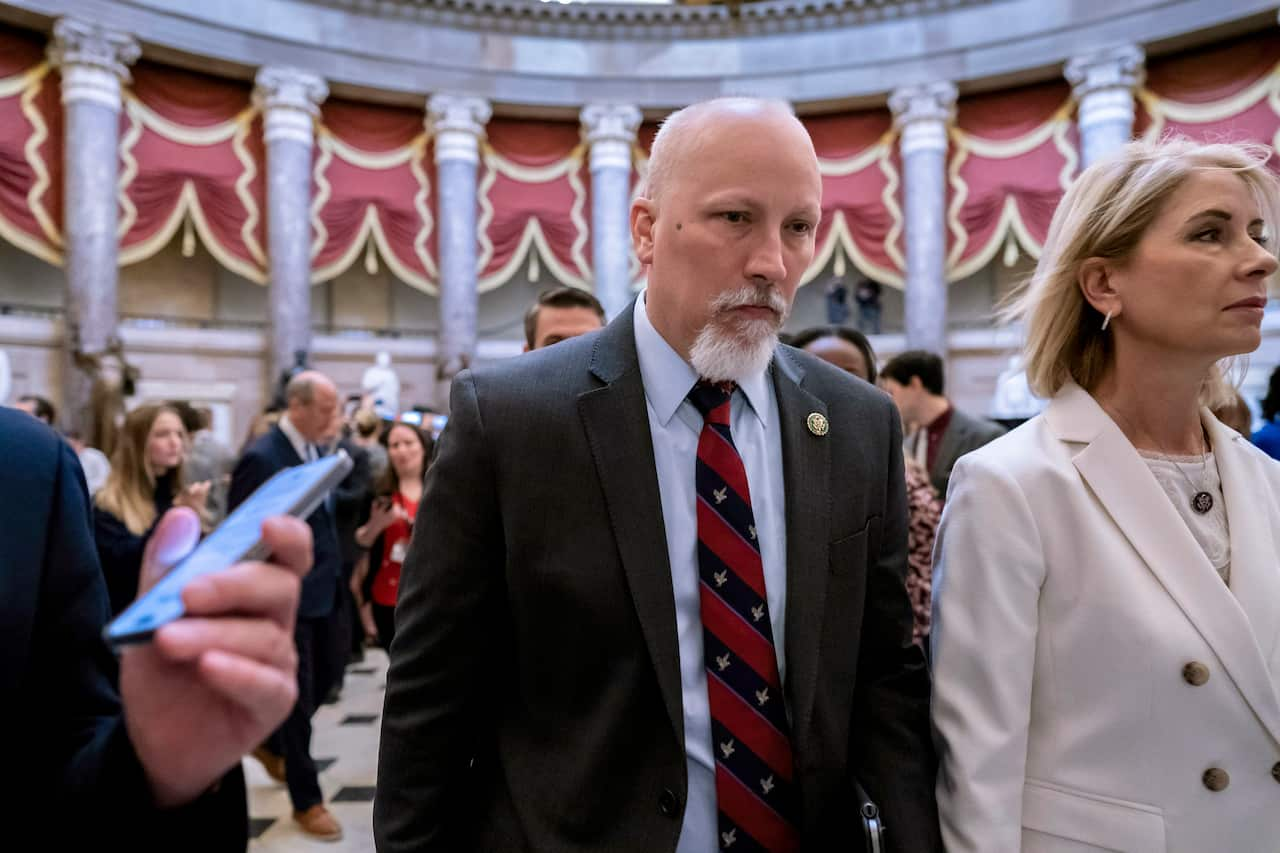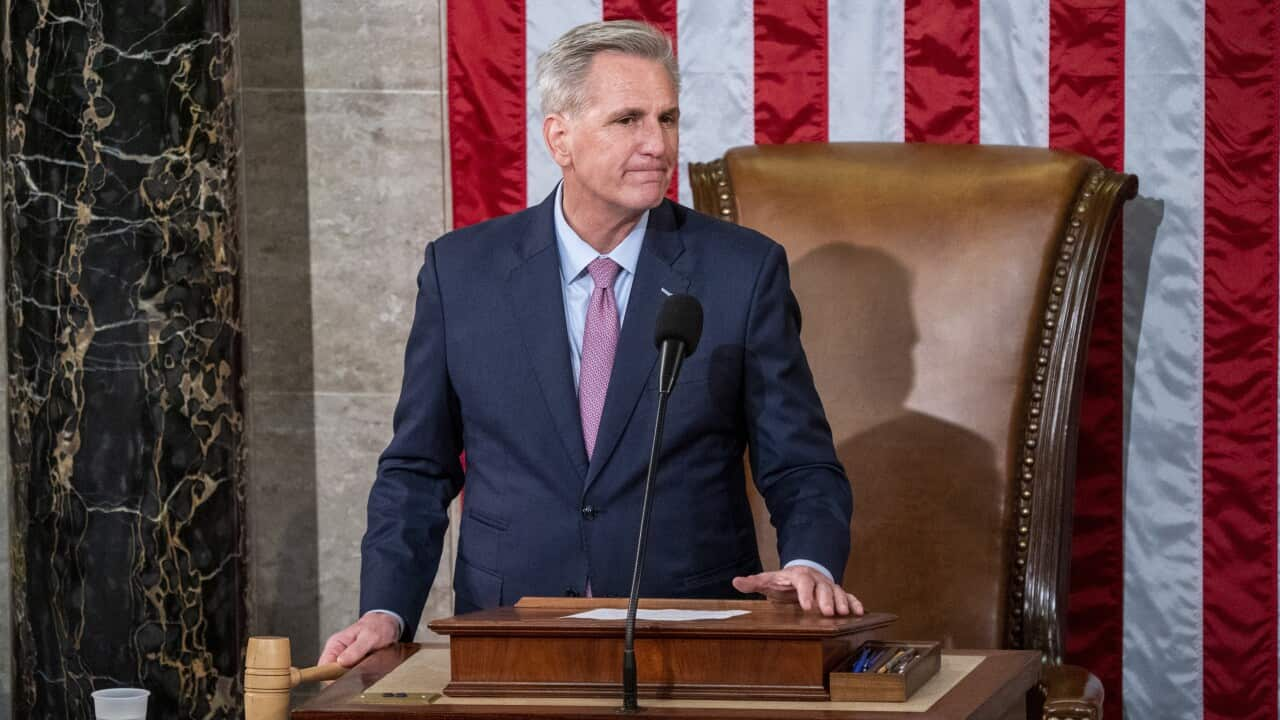Key Points
- Kevin McCarthy has been elected speaker of the US House of Representatives.
- The result comes after 15 rounds of voting over four days.
- It is the longest speakership election in 160 years.
Republican Kevin McCarthy has been elected speaker of the US House of Representatives, after making extensive concessions to a group of right-wing hardliners that raised questions about the party's ability to govern.
The 57-year-old Californian suffered one final humiliation when Representative Matt Gaetz withheld his vote on the 14th ballot as midnight approached on Friday (local time), prompting a scuffle in which fellow Republican Mike Rogers had to be physically pulled away.
Mr McCarthy's victory in the 15th ballot brought an end to the deepest congressional dysfunction in 160 years. But it sharply illustrated the difficulties that he will face in leading a narrow and deeply polarised majority.

Republican Leader Kevin McCarthy gestures after lawmakers voted him to be the next speaker of the House of Representatives in the US Capitol in Washington, 7 January 2023. Source: AAP / JIM LO SCALZO/EPA
He was able to be elected with the votes of fewer than half the House members only because five in his own party withheld their votes - not backing Mr McCarthy as leader, but also not voting for another contender.
As he took the gavel for the first time, Mr McCarthy represented the end of President Joe Biden's Democrats' hold on both chambers of Congress.
"Our system is built on checks and balances. It's time for us to be a check and provide some balance to the president's policies," Mr McCarthy said in his inaugural speech, which laid out a wide range of priorities from cutting spending to immigration, to fighting culture war battles.
Victory made, but with concessions
Mr McCarthy secured the gavel only after agreeing to a demand by hardliners that any lawmaker be able call for his removal at any time.
That will sharply cut the power he will hold when trying to pass legislation on critical issues including funding the government, addressing the nation's looming debt ceiling and other crises that may arise.
Republicans' weaker-than-expected performance in November's midterm elections left them with a narrow 222-212 majority, which has given outsized power to the right-wing hardliners who have opposed Mr McCarthy's leadership.
Those concessions, including sharp spending cuts and other curbs on Mr McCarthy's leadership, could point to further turbulence in the months ahead, especially when Congress will need to sign off on a further increase of the United States' $31.4 (($A45.6) trillion borrowing authority.

Members of the House of Representatives are sworn in by Kevin McCarthy, who was elected speaker of the House on the 15th ballot. Source: AAP / Jack Gruber-USA TODAY/Sipa USA
Several of the hardliners have questioned Mr McCarthy's willingness to engage in such brinksmanship when negotiating with Mr Biden, whose Democrats control the Senate. They have raged in the past when Senate Republicans led by Mitch McConnell agreed to compromise deals.
The hardliners, also including Freedom Caucus Chairman Scott Perry and Chip Roy of Texas, said concessions they extracted from Mr McCarthy will make it easier to pursue such tactics this year - or force another vote on Mr McCarthy's leadership if he does not live up to their expectations.

Representative Scott Perry, the chairman of the hard-right House Freedom Caucus. Source: AAP, AP / J. Scott Applewhite
This week's 14 failed votes marked the highest number of ballots for the speakership since 1859, in the turbulent years before the Civil war.
Mr McCarthy's last bid for speaker, in 2015, crumbled in the face of right-wing opposition. The two previous Republican speakers, John Boehner and Paul Ryan, left the job after conflict with right-wing colleagues.
Mr McCarthy now holds the authority to block Mr Biden's legislative agenda, force votes for Republican priorities on the economy, energy and immigration and move forward with investigations of Mr Biden, his administration and his family.
But Mr McCarthy has agreed to concessions that mean he will hold considerably less power than his predecessor, Democrat Nancy Pelosi. That will make it hard for him to agree to deals with Democrats in a divided Washington.
Share

